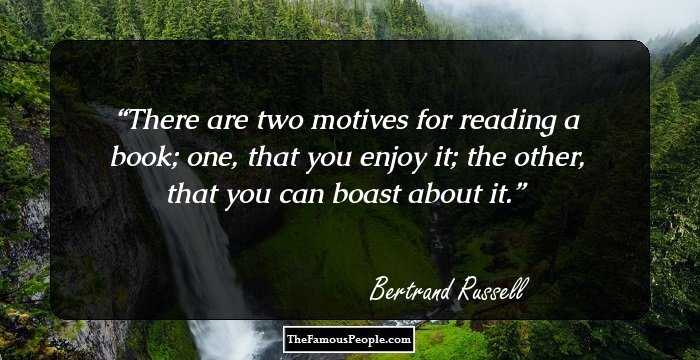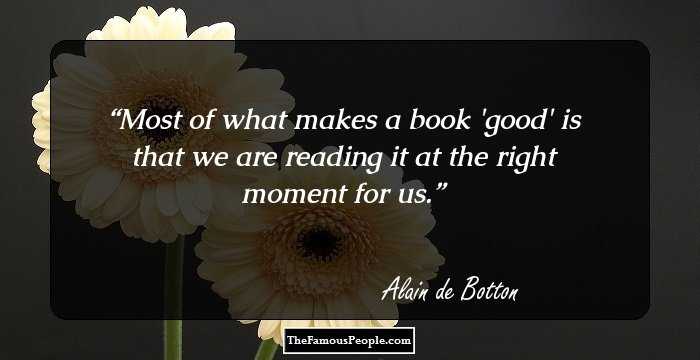
Most of what makes a book 'good' is that we are reading it at the right moment for us.
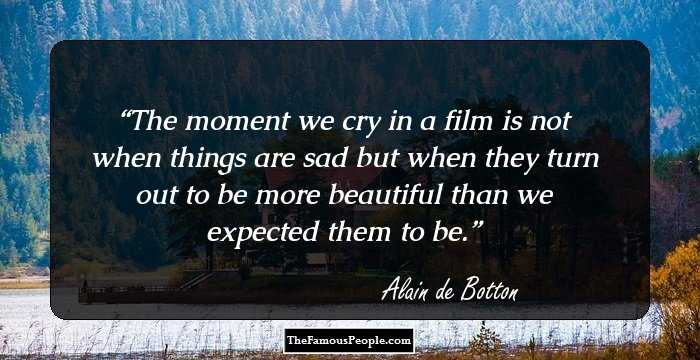
The moment we cry in a film is not when things are sad but when they turn out to be more beautiful than we expected them to be.
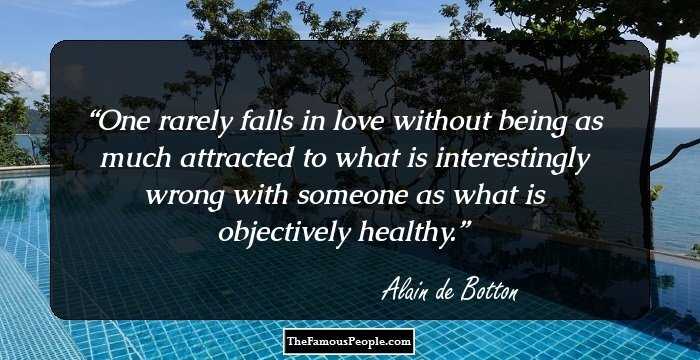
One rarely falls in love without being as much attracted to what is interestingly wrong with someone as what is objectively healthy.
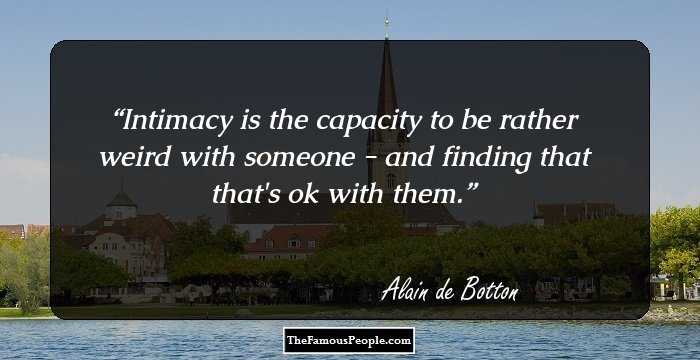
Intimacy is the capacity to be rather weird with someone - and finding that that's ok with them.
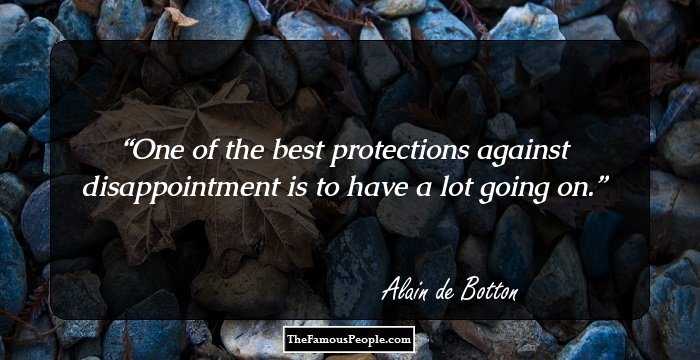
One of the best protections against disappointment is to have a lot going on.
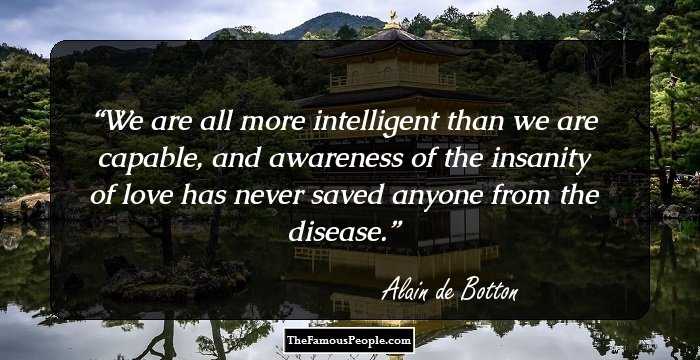
We are all more intelligent than we are capable, and awareness of the insanity of love has never saved anyone from the disease.
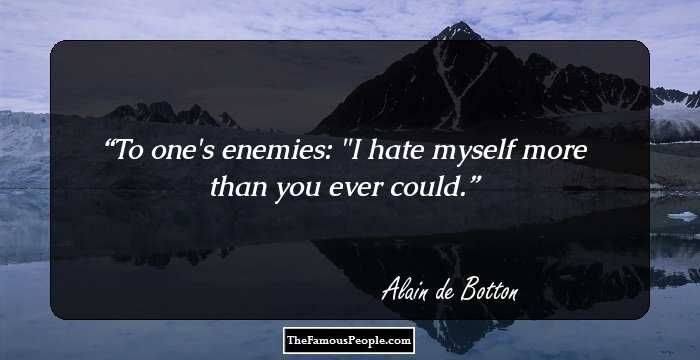
To one's enemies: "I hate myself more than you ever could.
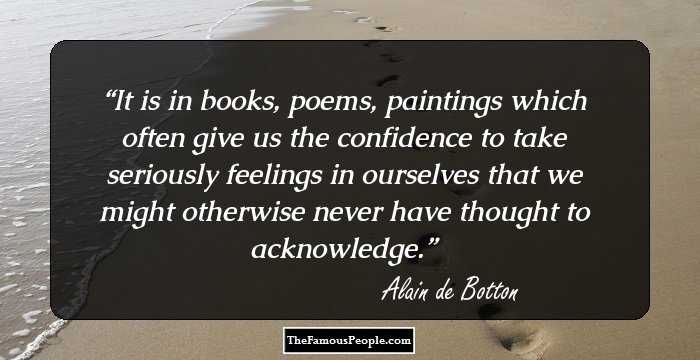
It is in books, poems, paintings which often give us the confidence to take seriously feelings in ourselves that we might otherwise never have thought to acknowledge.
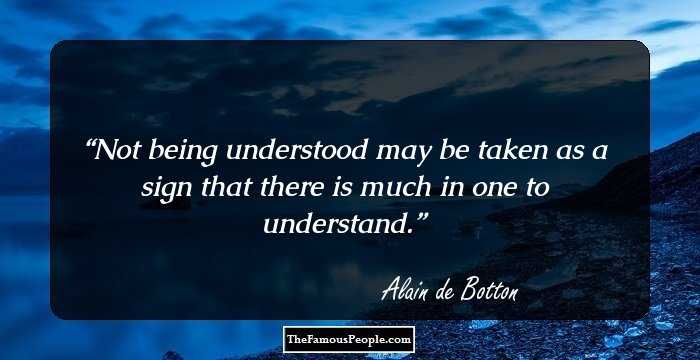
Not being understood may be taken as a sign that there is much in one to understand.
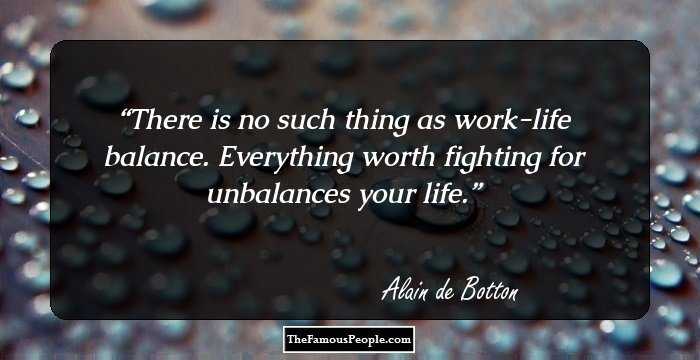
There is no such thing as work-life balance. Everything worth fighting for unbalances your life.
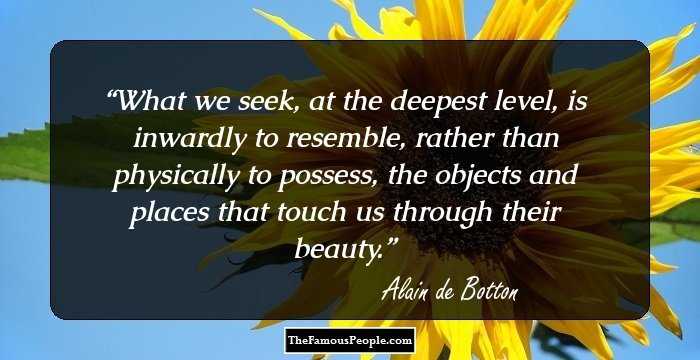
What we seek, at the deepest level, is inwardly to resemble, rather than physically to possess, the objects and places that touch us through their beauty.
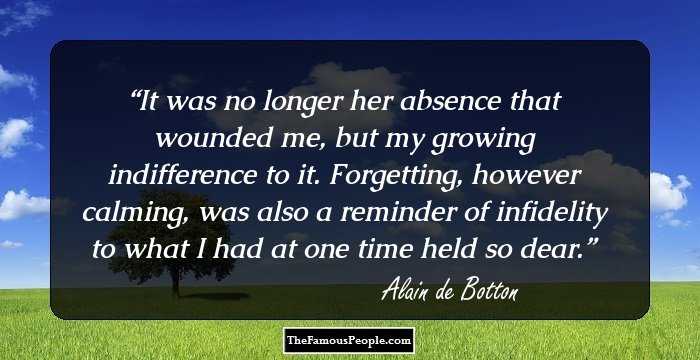
It was no longer her absence that wounded me, but my growing indifference to it. Forgetting, however calming, was also a reminder of infidelity to what I had at one time held so dear.
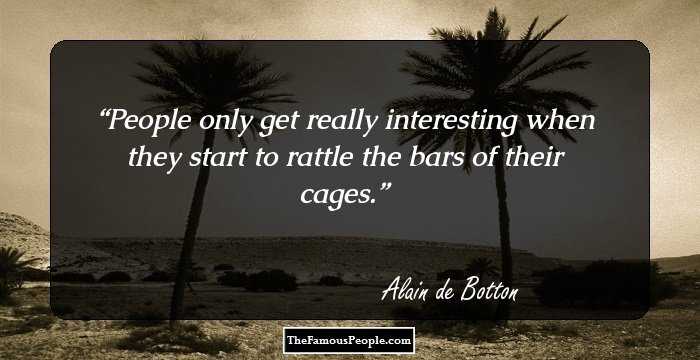
People only get really interesting when they start to rattle the bars of their cages.
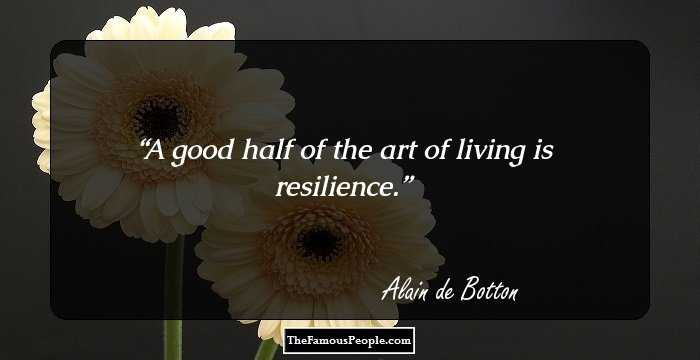
A good half of the art of living is resilience.
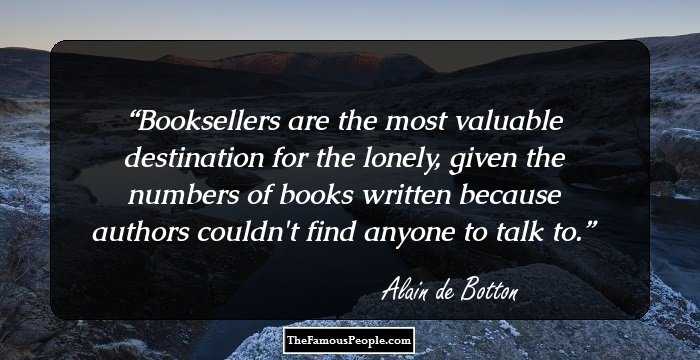
Booksellers are the most valuable destination for the lonely, given the numbers of books written because authors couldn't find anyone to talk to.
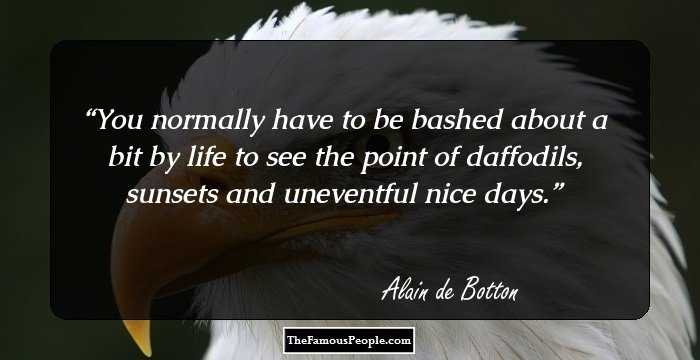
You normally have to be bashed about a bit by life to see the point of daffodils, sunsets and uneventful nice days.
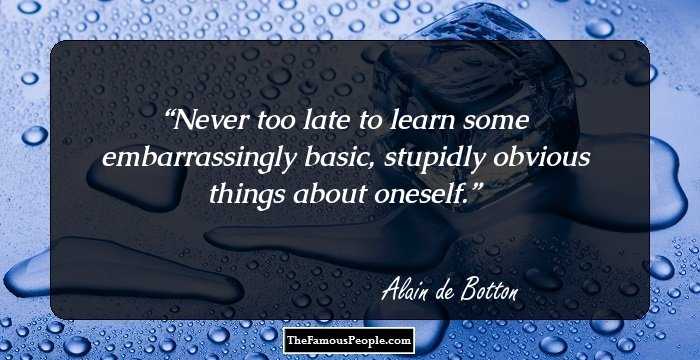
Never too late to learn some embarrassingly basic, stupidly obvious things about oneself.
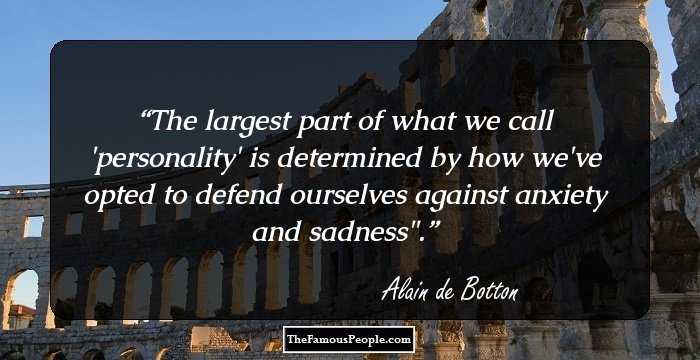
The largest part of what we call 'personality' is determined by how we've opted to defend ourselves against anxiety and sadness".
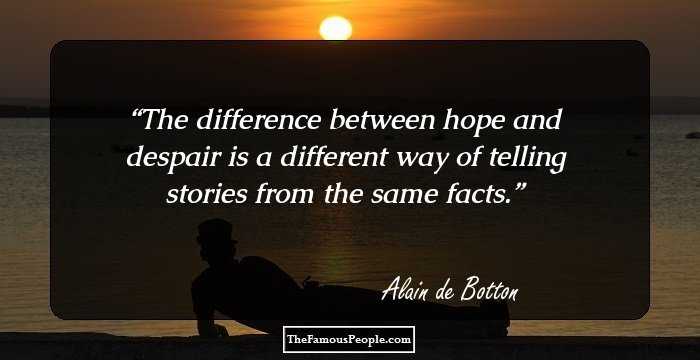
The difference between hope and despair is a different way of telling stories from the same facts.
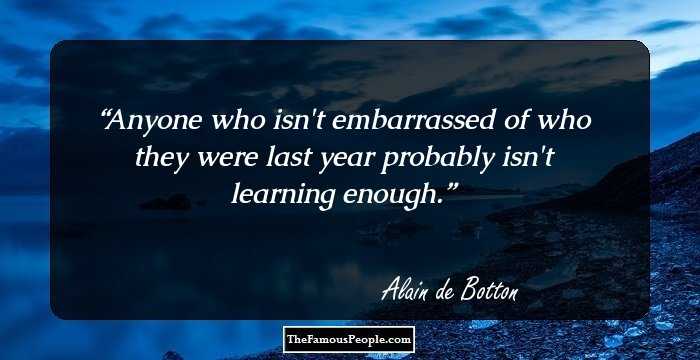
Anyone who isn't embarrassed of who they were last year probably isn't learning enough.

Do you love me enough that I may be weak with you? Everyone loves strength, but do you love me for my weakness? That is the real test.
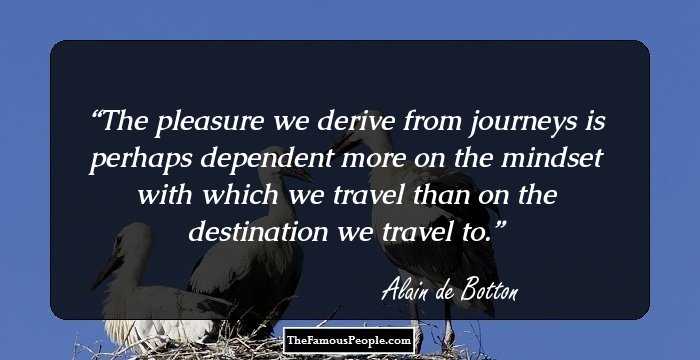
The pleasure we derive from journeys is perhaps dependent more on the mindset with which we travel than on the destination we travel to.
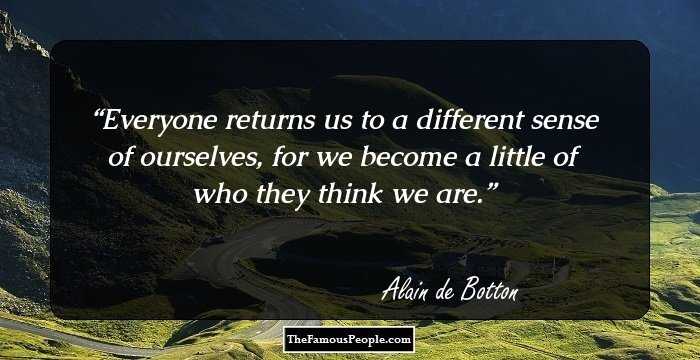
Everyone returns us to a different sense of ourselves, for we become a little of who they think we are.
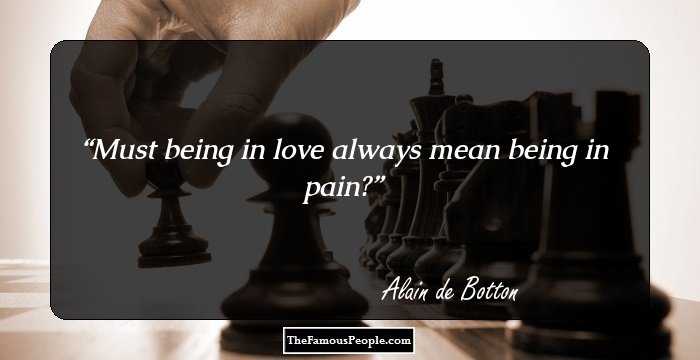
Must being in love always mean being in pain?
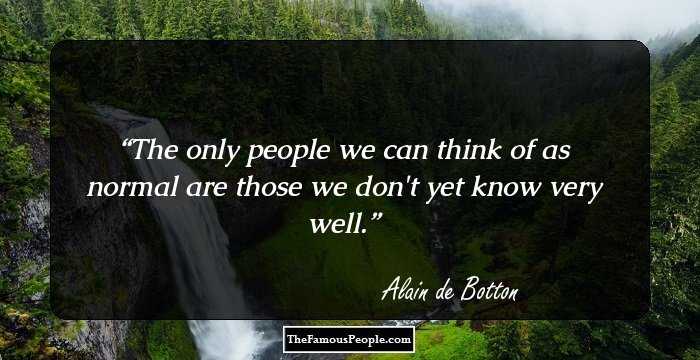
The only people we can think of as normal are those we don't yet know very well.
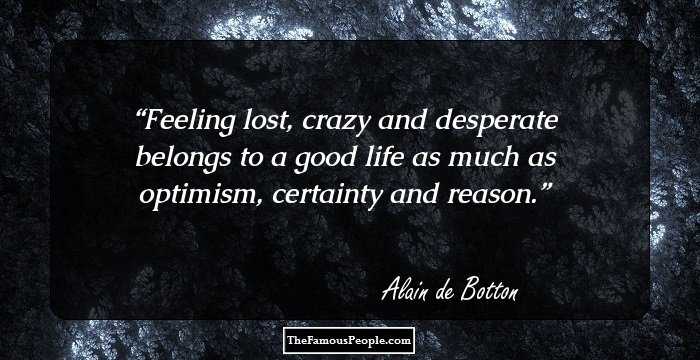
Feeling lost, crazy and desperate belongs to a good life as much as optimism, certainty and reason.
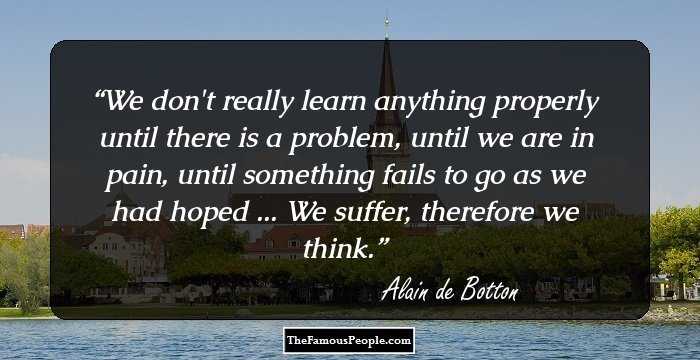
We don't really learn anything properly until there is a problem, until we are in pain, until something fails to go as we had hoped ... We suffer, therefore we think.
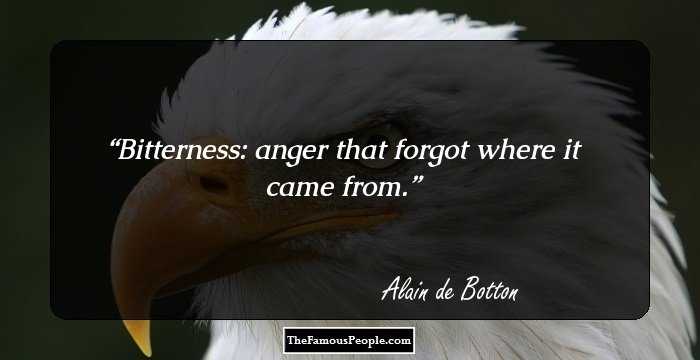
Bitterness: anger that forgot where it came from.
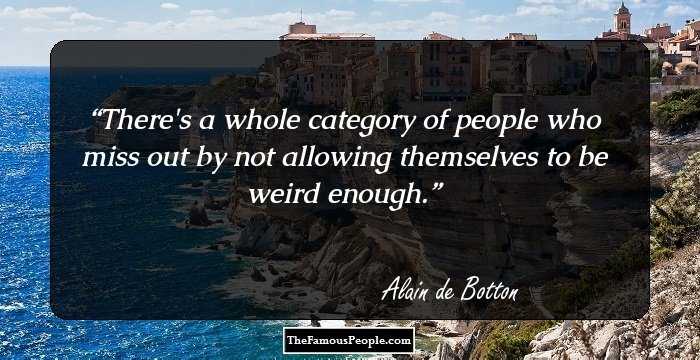
There's a whole category of people who miss out by not allowing themselves to be weird enough.
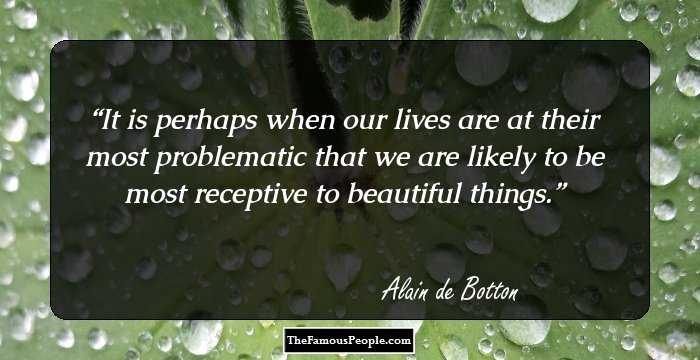
It is perhaps when our lives are at their most problematic that we are likely to be most receptive to beautiful things.









